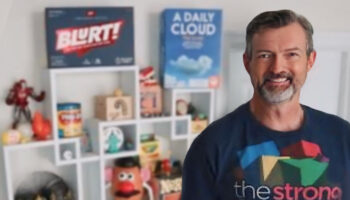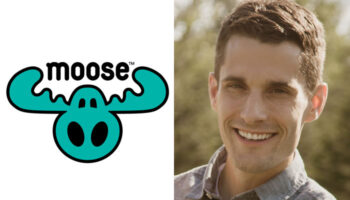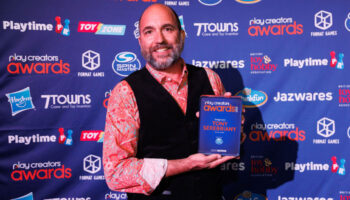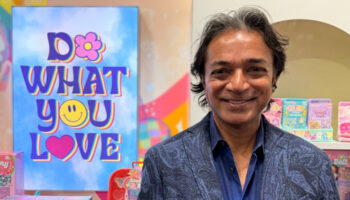Hub Games’ Michael Fox on bringing an emotional experience to the tabletop with Holding On: The Troubled Life of Billy Kerr
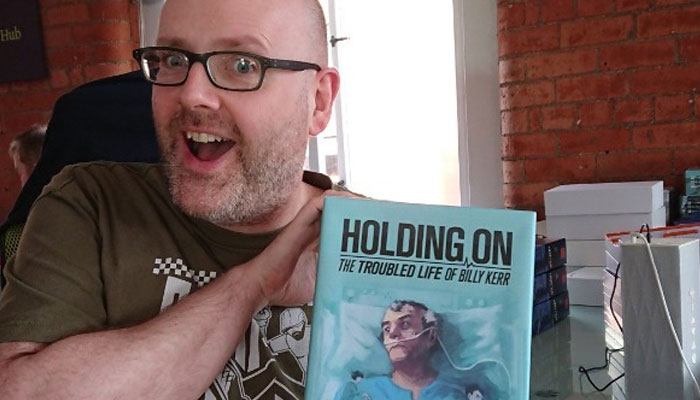
Hub Games (formerly The Creativity Hub) are known for being the tabletop’s go-to masters of storytelling.
Whether it’s getting players to build a story out of Rory’s Story Cubes or allowing them to star in their own heroic tale in Untold: Adventures Await, storytelling has always been at the heart of the studio’s output.
The firm took this idea of games as a medium for storytelling to a new level earlier this year when it debuted Holding On: The Troubled Life of Billy Kerr, a deep, emotionally impactful game that sees players work co-operatively to provide both physical and palliative care to the dying Billy Kerr.
Each of the game’s ten Scenarios encourages different approaches as gamers develop their relationship with Billy Kerr, discovering more about his story, and contacting people from his past in a race against time.
We caught up Holding On’s co-designer, Michael Fox, to learn more about the origins of the game, and how the idea for a more ‘emotional’ style of gameplay presented itself in the design process.
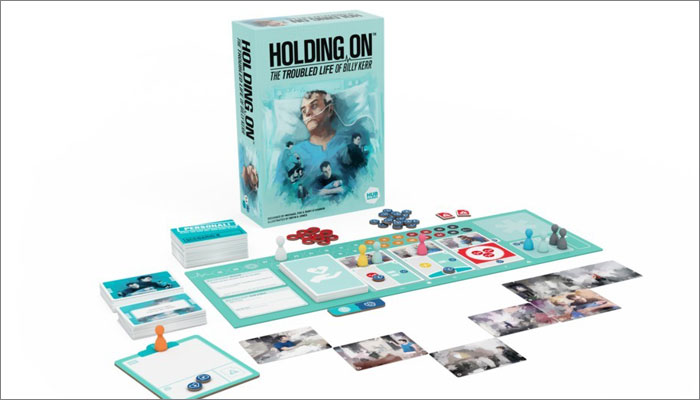
For those who are yet to play the game, how would you describe Holding On: The Troubled Life of Billy Kerr?
I’ve described it as half hospital management simulator, half playable TV drama set in a hospital where the doctors always seem to get a little bit too involved in the lives of their patient – though in this case, it’s just one patient, of course.
From a gameplay point of view, it’s a fully co-operative game where you, the staff in the medical facility that Billy’s been rushed to after having a heart attack on a flight from Sydney to London, have to ensure his remaining days are as comfortable and positive as possible. You can’t save him – we’ve been quite clear from day one that Billy will die at the end of the game – but you can help him.
While the theme means that the game isn’t for everyone, we’ve made things as accessible as possible from a rules standpoint, so anyone willing to give it a try will be able to get into the experience quickly.
Where did the idea for Holding On first come from?
A lot of that came from Rory O’Connor, the co-designer of the game. In the early days of development and design, we were talking a lot about how we could present players with an emotional experience encased within a great game – that was always at the forefront of our minds.
There are a lot of personal elements in Holding On, and early versions were based around how Alzheimer’s affects a person; so rather than it being about the discovery of memories, it was more about how they decay and change the personality of the person going through the disease. However, there was no real way to ‘win’ that version of the game, only losing with as little impact on the character as possible.
We needed to inject elements of positivity into Holding On, and thought about when do people really have the opportunity to take stock at their lives, and soon the early versions of the game started coming together.
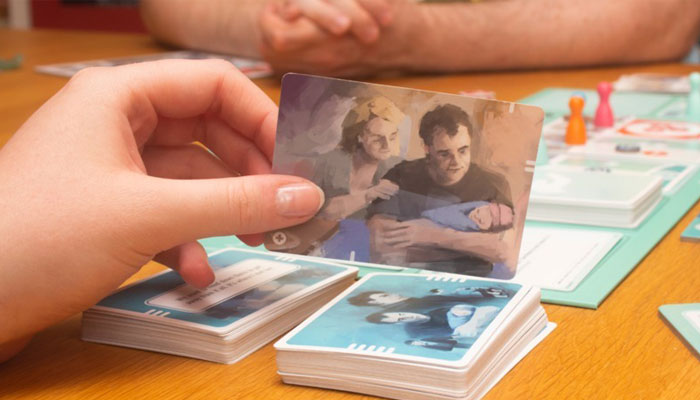
The game pushes the notion of games being more than just entertainment. How does this idea of an ‘emotional’ gameplay experience present itself in the design process?
Games always make us feel emotions – the joy of pulling off a move you originally planned for five turns ago, the sadness of just failing to beat an opponent despite a good showing – it’s just that in Holding On, we wanted players to feel a bit more!
Every decision you make in the game is tuned to have the players feel a little bit more, every difficult call over whether to keep Billy alive a little longer versus spending time with him, talking to him about his past…
We made a lot of design decisions to enhance these feelings. Like, we tried a few iterations where players were characters in the game – the unstressable nurse, the caring doctor – but I found that actually removed players from what we wanted them to do in Holding On. We needed players to ‘be’ the doctors and nurses making those decisions in the moment, not have them wonder ‘what would my character do?’ every time they were assigned to a shift.
Really, the game design kind of flowed both ways – real life influenced some areas, while some game design abstractions flipped back and were reflected in the game, the story and the secrets within.
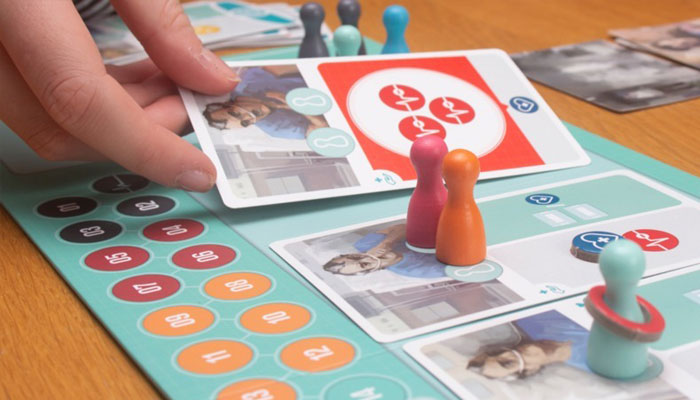
Hub Games has always had storytelling at the heart of the games you create, but does Holding On signal a move into launching more of these kinds of mature tabletop experiences?
It’s certainly an area we’d like to expand upon, but we don’t want to be ‘That Company’. We’ve got plans for other stories we’d love to tell using something similar to the Holding On engine, but there are other areas we want to explore and investigate too. Not everything we make will tug at the heartstrings, but when the game warrants it, we definitely won’t shy away from such things.
When we first came up with the early designs of Holding On, we weren’t sure there was a place for it in the gaming landscape, but I’d like to think we’ve carved a little niche out for ourselves.
First and foremost though, we want to focus on making great games that as wide an audience as possible will want to play, games that have heart. Our release slate for 2019 is very different to anything we’ve done up until now, and I hope that we get keep surprising people.
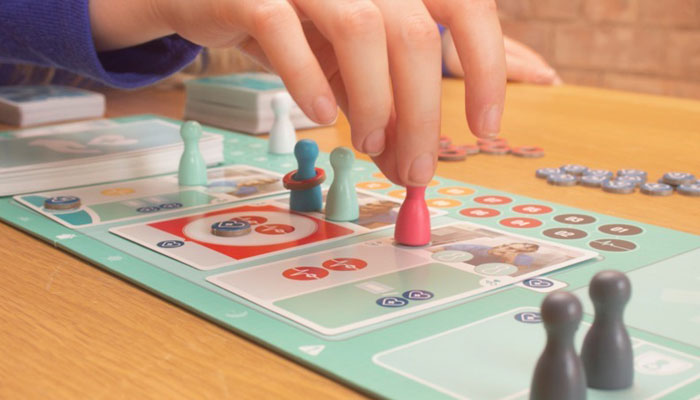
Holding On has been lauded as a bit of a breath of fresh air for the tabletop scene. How do you assess the current state of creativity in the tabletop sector?
Frankly, it’s better than it has ever been, you just need to know where to look.
Sure, there’s plenty of cube pushers, plenty of trading in the Mediterranean games – and I love them, as my shelves at home will attest – but if you do a little digging you’ll find some incredibly creative designers with very different concepts out there.
Just walking the halls at Essen a few weeks ago showed me that designers are becoming more comfortable with telling different stories or incorporating different game elements into their designs.
Have a look at some of the games being presented each time Tokyo Game Market rolls around. Investigate what’s going on in the independent RPG scene with games like Thousand Year Old Vampire or Dialect. Look beyond the shelves of your local game store and you may be surprised by the vibrant array of new ideas you can discover!



